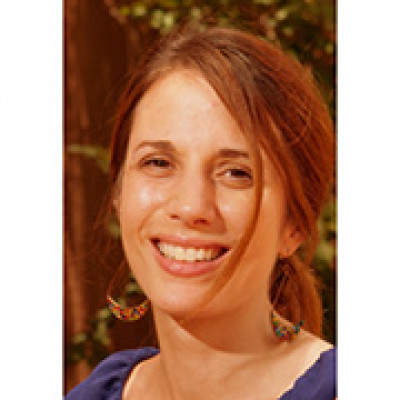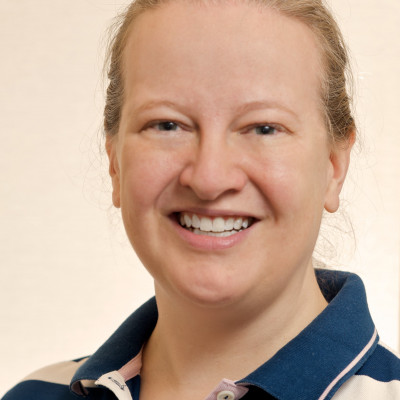Sessions / Location Name: F31: DO NOT RECORD
Physical Location
Location: F31
Building: Miwa Campus Building < The University of Nagano
Ainu Language Learning Through Synchronous and Asynchronous Online Methods #2845
While UNESCO classified the Ainu language as critically endangered in 2009, stakeholders continue to engage in preservation and revival efforts in a variety of capacities. This presentation will focus on an Ainu language class developed in March 2021, amidst the COVID-19 pandemic, adopting a new hybrid style of language learning. The weekly 90-minute class held on Zoom utilizes a long-standing community-based method for adult Māori language learning called Te Ataarangi combined with modern online initiatives. The language teachers and tutors also update self-access revision and study materials weekly on the associated Moodle LMS. The class participants (n=30) include both Ainu and non-Ainu, varying nationalities, young Ainu language and culture apprentices, shopkeepers, school teachers, university professors, university students, museum staff at Upopoy (the Symbolic Space for Ethnic Harmony in Shiraoi, Hokkaido) and other participants dedicated to Ainu language revitalization. The presenters will share the background and methods of the course and highlight the advantages and disadvantages of using Zoom as the main online synchronous learning tool. Functionality of the asynchronous tool, Moodle, will also be detailed, ending with a discussion of future plans for the development of the classes and online platforms.
Reverse Engineered: Modeling cross-cultural pragmatics with TOEFL iBT tasks #2853
The TOEFL iBT test is designed to measure the likelihood of academic success in English-medium universities attended by non-native English speakers. In order to do well on the test, an understanding of academic vocabulary is important, but so too is a grasp of non-academic vocabulary that is useful in student life. This “college knowledge” is tested in the listening and speaking sections of the TOEFL iBT. Test-takers are asked to demonstrate their understanding of conversations between students and professors, students and university staff such as a librarian, registrar, or academic advisor, and conversations among students. By utilizing TOEFL iBT practice materials and their accompanying scripts, these texts can be reverse engineered to model , instruct, and improve our students’ lexical and cross-cultural pragmatic awareness. This workshop will demonstrate how materials can be exploited to build up useful vocabulary for study abroad (dorm, GPA, transcript, etc.), improve situational awareness through reading, listening, and role-play, and ultimately build up students’ confidence so that they have a degree of “college knowledge” before they set foot on a campus far from home.
Building Zettelkastens for SLA research and the classroom #2912
In this presentation, classroom applications of the Zettelkasten method will be explored. A Zettelkasten is a personal knowledge management system in which notes are created and assigned to ad hoc categories as they emerge. By creating note slips, either in digital or analog form and subsequently creating links among them, a framework of knowledge can be replicated. By relating ideas to each other, students replicate a train of thought. Zettelkastens provide a place to store and, more importantly, organize knowledge, thereby increasing the quality and quantity of learning. Though this system was first used to develop research ideas, it also has applications in the foreign language classroom to serve as a framework in which the learners organize and consolidate what they have learned. In this talk, the presenter will first provide an overview of the literature on Zettelkastens and then demonstrate how to implement this system and apply it to research and, more importantly, the classroom. Finally, learners’ subjective feedback on the effectiveness of this classroom practice will be addressed.
The Digital Keyword Method in an Analog Classroom #2823
Despite the importance of lexical development for second-language learners, there seems to be confusion about the best way to teach vocabulary. The four main techniques for vocabulary acquisition mentioned in the literature are rote repetition, structure analysis, semantic strategies, and mnemonic devices (Cohen, 1987).
Although mnemonics have been used for at least 2,000 years (Caplan, 1954), it wasn’t until the mid-1960s that they began to be seriously studied scientifically (Cohen, 1987). This session will be concerned with one mnemonic technique in particular; the Keyword Method (Atkinson, 1975).
This presentation will report on a pilot study that used a one-group pretest-posttest design with 69 Japanese second-year university students who were taught a version of the Keyword Method for remembering vocabulary. A receptive vocabulary test was used as a pre- and posttest measure. Results showed a significant (p < .05) increase in vocabulary scores at the end of the semester, suggesting that an adapted version of the Digital Keyword Method (Sustenance, 2019) may be an effective way of teaching vocabulary in an analog classroom environment.
English private tutoring and washback from university entrance exams #2826
It is commonplace in Japan for students in formal education to receive additional English tuition that is provided outside of regular school hours and typically for a fee. Such English Private Tutoring (EPT) (Yung & Bray, 2017) has largely escaped the attention of researchers, though recent studies have sought to investigate its role in language education (see Yung & Hajar, forthcoming). In this presentation, the focus is on the role of juku (cram schools) and yobikō (preparatory schools) in preparing students for high-stakes university entrance exams, which is one of the well-established functions of EPT in Japan. The discussion is framed in terms of test washback, that is, the effect(s) that tests have on learning and teaching. Within this theoretical framework, the key findings will be synthesised from the available studies that have investigated learning, teaching and assessment of English in juku and yobikō. Based on these empirical studies, the presenter will illustrate how exam content drives teaching and learning within EPT and how narrowing of the curriculum in EPT can affect teaching and learning in mainstream education. The presentation will be concluded with a call for further research into this much overlooked area of education.






